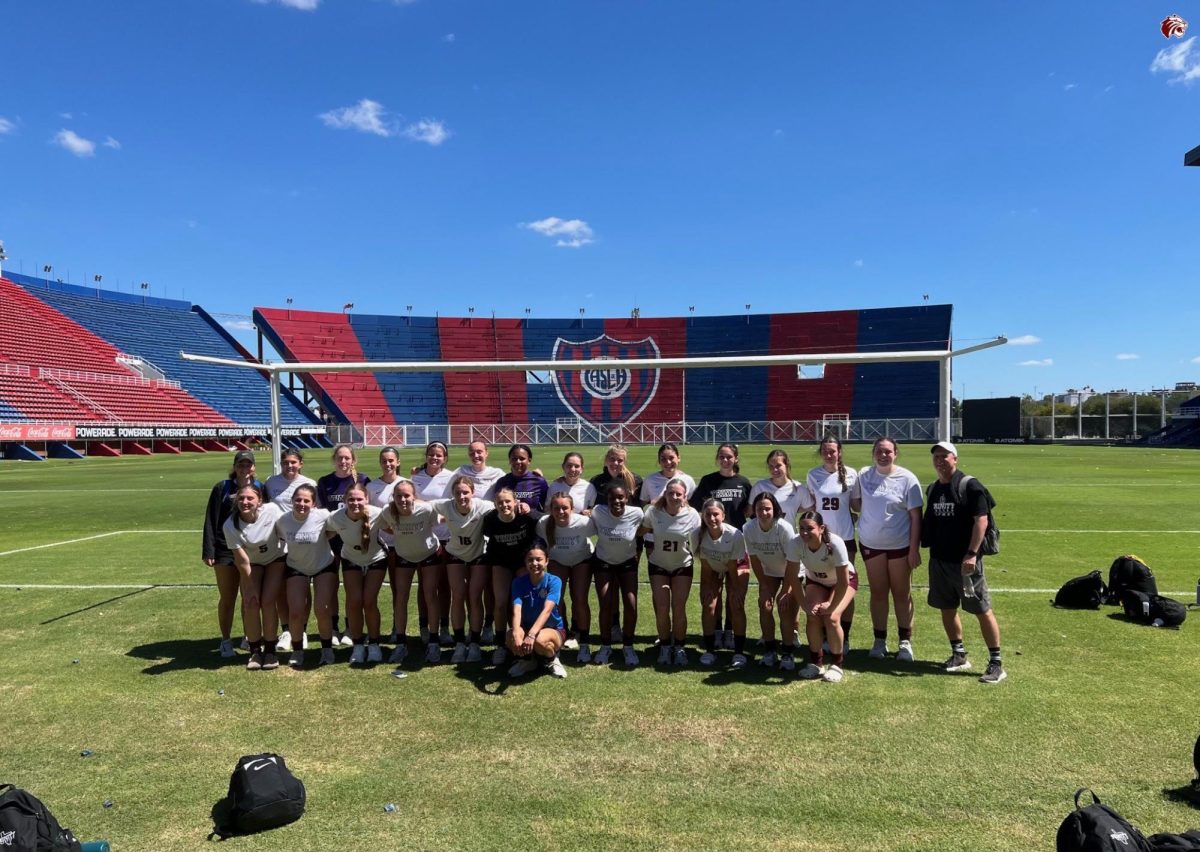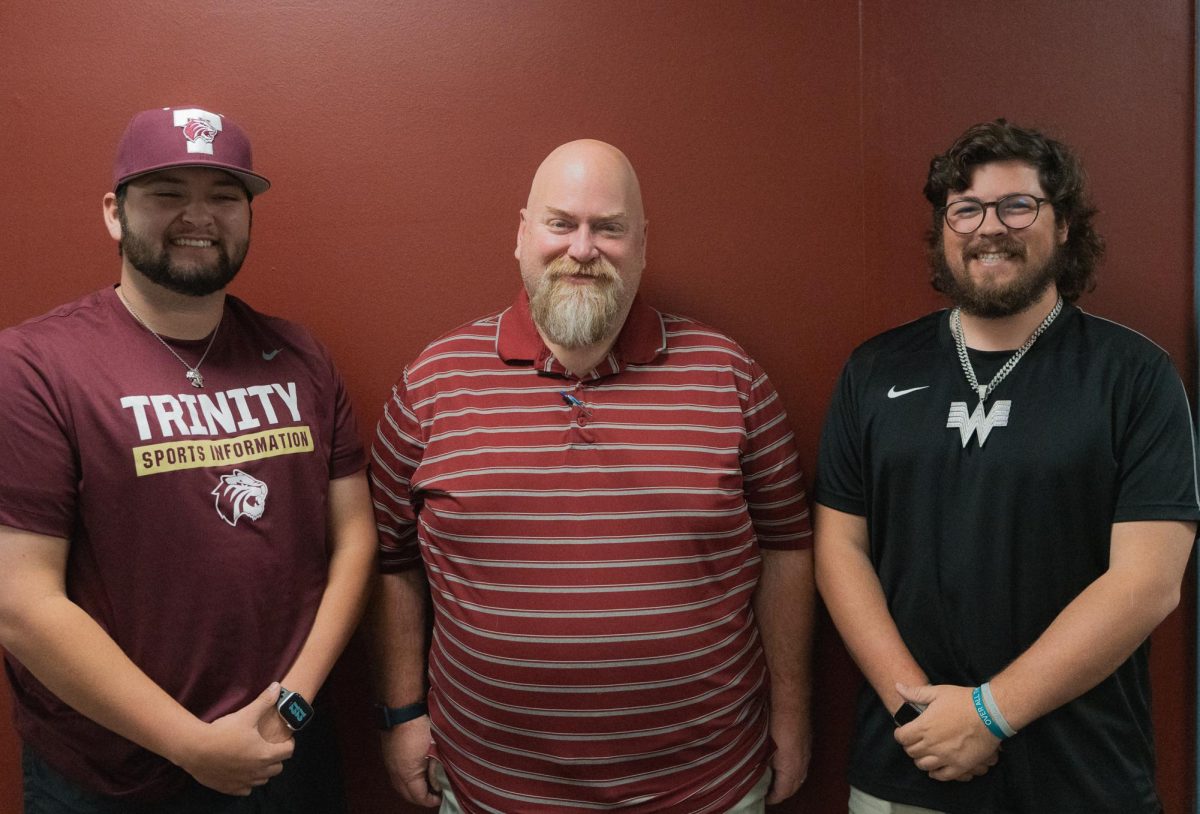As the reigning World Cup champions and home to a player many consider the greatest of all time, Argentina is a country that bleeds the beautiful game. Over spring break, it also played host to reigning women’s soccer SCAC champions: the Trinity Tigers.
Led by head coach Dylan Harrison, Trinity women’s soccer engaged in a soccer pilgrimage — one designed to elevate the team to new heights. Arriving in Buenos Aires on March 8, the team had a packed eight days in Argentina until their departure on March 15.
“Even though it was a spring break trip, it was pretty soccer heavy,” Harrison said. “I probably should’ve given the team more of a heads-up, but you’re only there once.”
During their time in Argentina, the team explored diverse cities, toured stadiums, attended matches, played games and immersed themselves in the Argentinian soccer experience. Even for sophomore midfielder Malea Cesar, former international player for the Philippines accustomed to travel, the trip was more than she was used to.
“I’ve been to lots of places, but most of the time, it was just to play soccer,” Cesar said. “This time, it was cool to be able to actually see the different cities and … learn about the soccer in the countries.”
Still, as coach Harrison indicated, this wasn’t a vacation. Harrison had goals he wanted his team to achieve.
“My objectives were as much about the team culture as the playing dynamics,” Harrison said. “We have first-years coming in, and the team dynamics are going to change. Meanwhile, our culture should always remain.”
The trip’s focus on culture extended to their games, where the team played with newfound joy and chemistry without standings or records.
“There was no pressure on us. It was a reminder that playing soccer with my friends is something that’s fun, and it doesn’t have to be stressful,” junior forward Hanna Khan said.
Cesar added that the focus on fun and culture led them to play better despite facing formidable opponents. While the Tigers faced mostly reserve teams and youth players, everyone they faced had been raised in the way of the game.
“We’d all agree that they were better than us technically, but we played together cohesively,” Cesar said. “It was free-flowing, and we had some of the best combinations that we’ve had.”
The lack of pressure and the loose environment played into Harrison’s objectives. Here the team was, in a different country, and yet they were playing with a new found confidence and composure.
“They were exposed to something different, and still trying to represent our identity,” Harrison said. “They were physical, dynamic, good in transition and worked as a team. It surprised them that we were able to sustain that over long chunks of game.”
It also surprised Boca Juniors, a professional club who scrimmaged with Trinity, who invited the team on an impromptu tour of the stadium, where they even got to walk on the field.
“We had a good season last year, and getting reaffirmed that way. It’s optimism for the future,” Khan said. “We’re all excited for what’s to come next year.”
During the trip, the team was able to learn from Argentinian women’s national team coach Germán Darío Portanova. The Tigers had a chance to train with an active national team coach and gain insights about how to improve their game like a professional. This provided the team with insider knowledge that many NCAA programs may not be prepared for.
A prevalent takeaway was that there was work to be done. Not for the Tigers, but for women’s soccer itself. Both Harrison and Khan brought up the fact that few resources are used on women’s soccer in Argentina compared to the men’s. Women’s soccer wasn’t even professional in the country until 2019.
“We’re in this country that just won the World Cup, and every game we played was at a ‘Women’s Stadium,’ which were just a plain pitch outside the men’s stadiums,” Khan said. “We’re not even satisfied with how it is in the US, so to see where these other countries are, it wasn’t unexpected, but it was still upsetting.”
Regarding the lack of respect for women’s soccer, Cesar turned toward the future.
“It was a reminder of all the opportunities we have,” Cesar said. “It’s not just in the Philippines, it’s the same situation in all these countries where visibility and equality for women is an issue. It’s a reminder to give back.”
On the whole, this trip allowed the Tigers to experience a breadth of soccer unlike anything they’d seen before. According to Harrison, the team returned from Argentina with a new sense of pride and enthusiasm.
“The girls got to watch a game with 85,000 fans, then two days later, we’re playing next to the stadium. To have the chance to train with a head national team coach, that’s not common. The whole trip was surreal,” Harrison said.
When asked about whether he thought his team accomplished what he set out for them to achieve, Harrison voiced no doubt.
“Having a better understanding of who we are and getting closer as a team were the objectives,” Harrison said. “I think after some much-needed sleep, everybody would agree that we accomplished those things.”
The Tigers seemed poised with new energy and ambition to conquer a new challenge come August, as they will start their first season in a new conference. The team will look to use this unique experience to their advantage to replicate and surpass past success.







